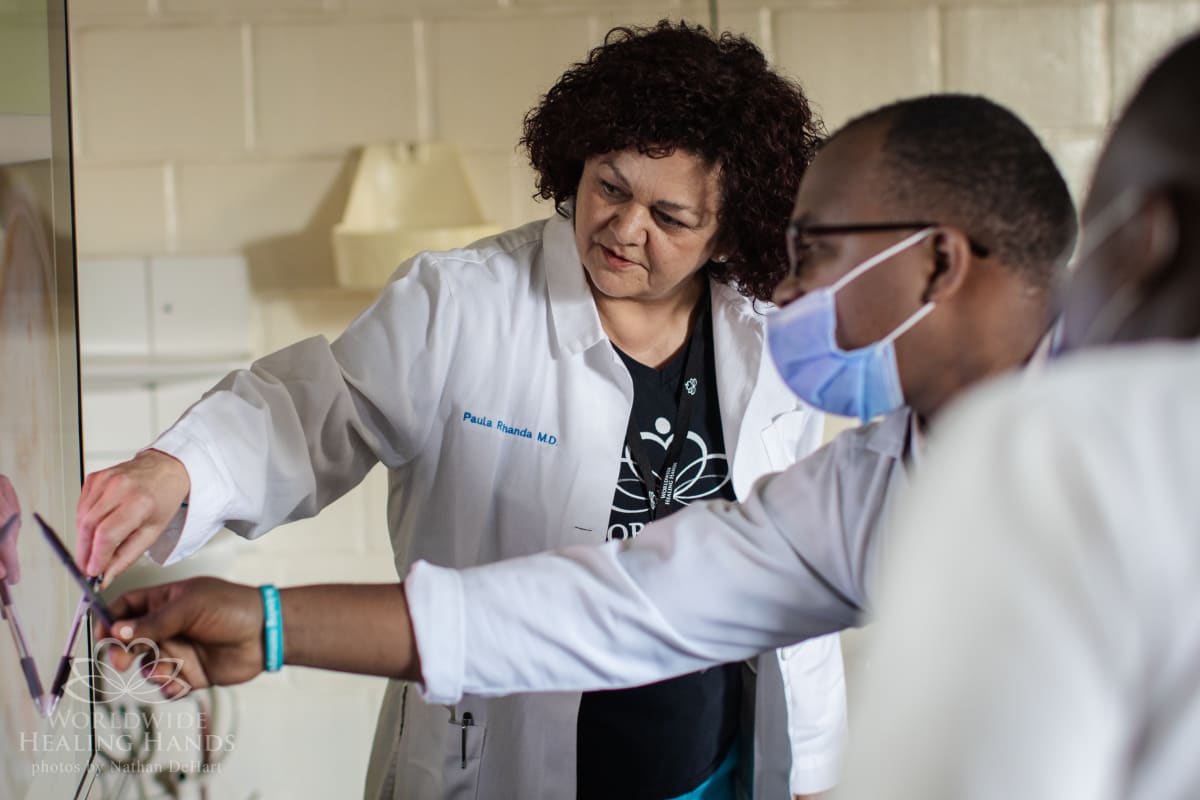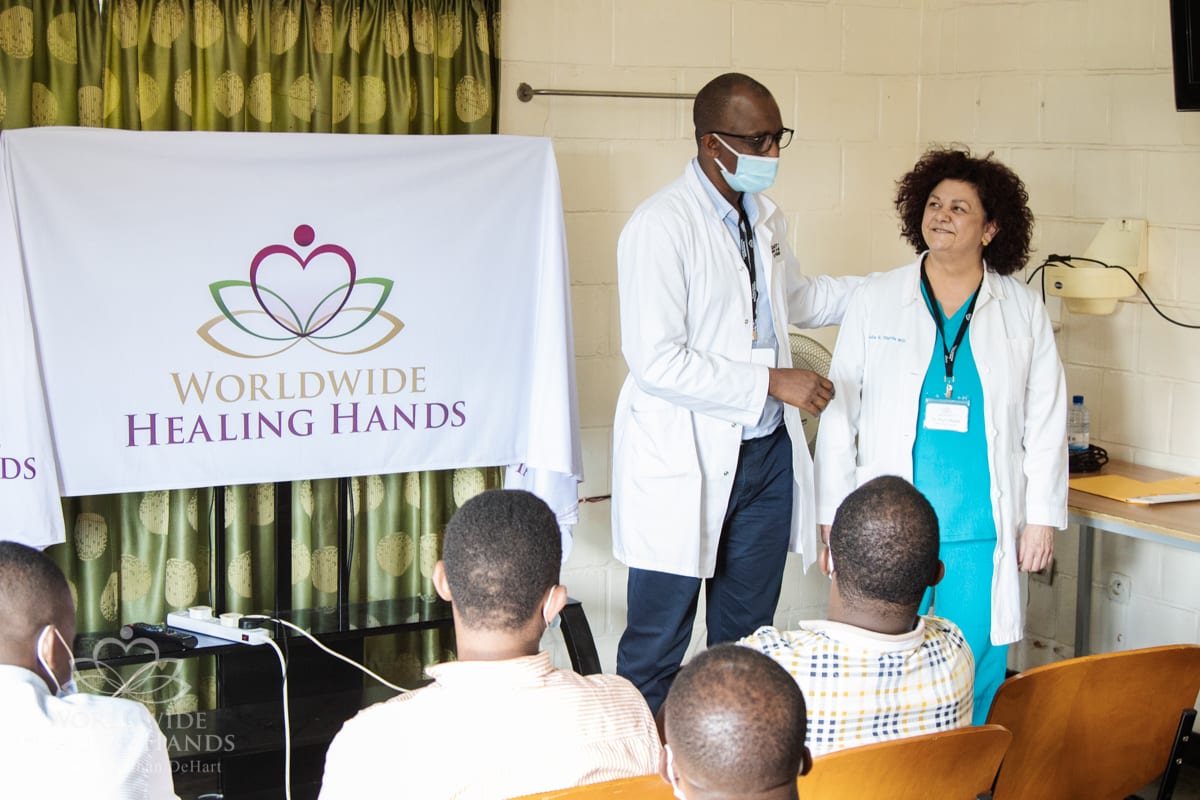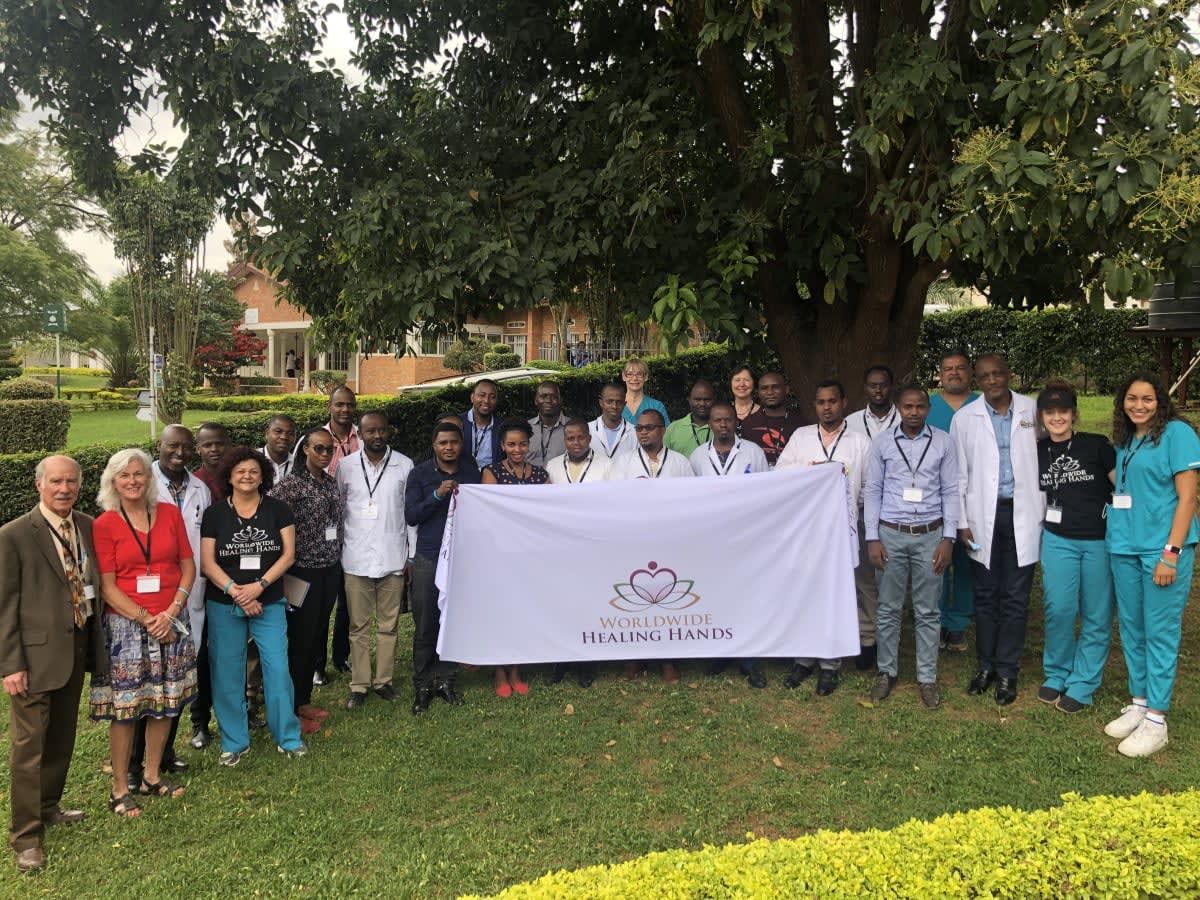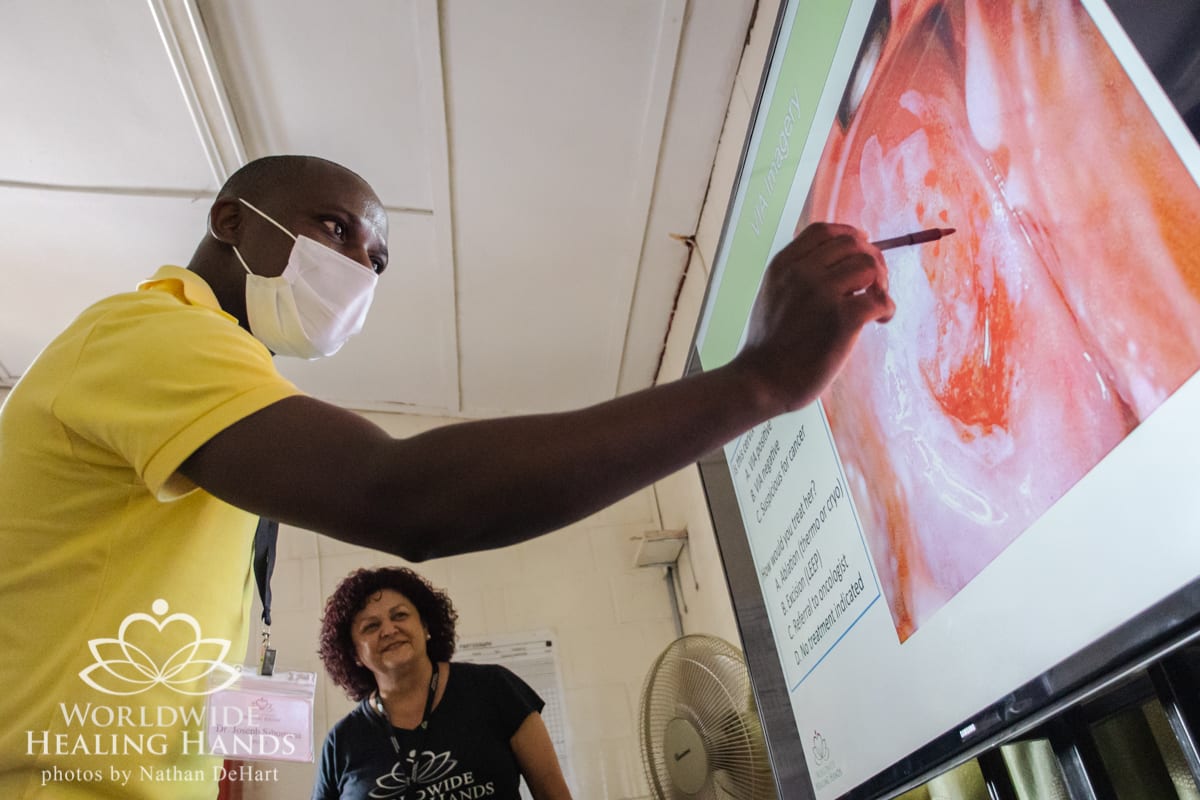Every year more than half a million women worldwide are diagnosed with cervical cancer. More than half of these women will die. In Rwanda, the lack of healthcare professionals trained in secondary cervical cancer prevention procedures, inadequate access to equipment used to treat precancerous lesions and the extensive gap in the referral system has led cervical cancer to be the most common type of cancer-related death in the nation. Worldwide Healing Hands (WHH), a 501 (c)3 organization, has partnered with MD Anderson Cancer Center, Clinton Health Access Initiative (CHAI), American Society for Colposcopy and Cervical Pathology (ASCCP) and the OB/GYN Department at the University of Rwanda to create a three-step project that will help train residents and medical staff at the University of Rwanda in secondary prevention procedures for cervical cancer and screen and treat hundreds of local Rwandan women.
The first step in this project is virtual training. WHH and MD Anderson will provide virtual lectures and demonstrations in cervical cancer screening procedures March 29th and 30th, 2021. Step two will take place as WHH sends our team of skilled medical volunteers to the University of Rwanda May 28th through June 12th, 2021 to provide hands-on training for 50 OB/GYN residents and all supporting staff in the prevention and treatment of cervical cancer. WHH will also donate colposcopes and all medical supplies required for this initiative. To mitigate the gap in the referral system, our team will teach the “single-visit approach” which encourages women to be screened and receive treatment in the same appointment, negating the need for a referral. Furthermore, the WHH team will travel to at least three additional sites to provide cervical cancer prevention training to local medical staff and screening for rural Rwandan women. The third and final step in this project will be monthly virtual follow-up sessions as provided by WHH and MD Anderson Cancer Center.
The clinical sites WHH will work in include 2 at The University Teaching Hospital of Kigali (CHUK) and 1 at Muhima District Hospital. These clinics are the major referrals sites for the entire population of Rwanda as they are the only sites with adequate staff and equipment. They are both located in Kigali and serve the entire population of Rwanda.
Currently, Rwanda has only 7 colposcopes to serve a population of 6.5 million women. Additionally, although CHAI and the Rwandan Government have provided 5/30 districts with LEEP equipment, there are very few gynecologists who have the necessary training to perform these procedures. Furthermore, due to COVID, in 2020 HPV testing was completely halted and has only resumed in 3/30 districts as of 2021. At the request of the Rwandan Government, WHH has decided to travel to Rwanda in May to assist the University of Rwanda OB/GYN Department in training their medical residents in cervical cancer prevention procedures in order to better serve the entire population of Rwandan women.
This project will provide a sustainable, replicable, and cost-effective program that will result in cervical cancer prevention training for over 50 Rwandan medical personnel, provide equipment to under-resourced districts in Rwanda, help reduce the massive gap in the referral system, and provide cervical cancer screening and treatment for hundreds of local women.
Our partnership with MD Anderson will ensure that the training provided to medical staff during our time in Rwanda is reinforced by participation in monthly cervical cancer Zoom conferences. Additionally, the University of Rwanda OB/GYN Department will aid in the sustainability of this program by encouraging their medical residents to train rural medical staff in cervical cancer screening and treatment procedures after our departure. Finally, WHH will travel back to Rwanda at the end of 2021 or beginning of 2022 to ensure that our education program is running smoothly and to assist the University of Rwanda OB/GYN Department in training the next group of Rwandan medical residents.










Every year more than half a million women worldwide are diagnosed with cervical cancer. More than half of these women will die. In under-resourced countries like Rwanda, this preventable disease is the most common type of cancer-related death and the second most common type of cancer. Due to the dire need to prevent the mortality associated with cervical cancer, the World Health Organization (WHO) has recently declared that it will redirect its efforts to eradicate cervical cancer by 2030.
To assist Rwanda in reaching the WHO's goal, Worldwide Healing Hands (WHH) brought a team of 13 volunteers to the University Teaching Hospital of Kigali (CHUK) and provided cervical cancer prevention training to their 39 OB/GYN residents and 6+ faculty. The training included lectures on the epidemiology of cervical cancer in Rwanda, precancerous lesions of the cervix, VIA, colposcopy, thermal ablation, and LEEP. Subsequent to the lectures, volunteer medical staff trained the residents and faculty in the usage of Liger thermo-coagulators, EVA colposcopes, and LEEP machines through simulations conducted on meat products. After participating in simulations, residents were then grouped with WHH medical staff and conducted rounds throughout the teaching hospital. During this time, residents screened patients and, under the guidance of our volunteer medical staff, administered procedures when necessary.
The training provided during our two weeks in Rwanda was instrumental to establishing a sustainable cervical cancer prevention program within CHUK, which, as the main referral hospital in Rwanda, will serve the entire population. This trip was also very informative for our NGO as we have learned that the biggest challenge facing the success of widespread cervical cancer prevention is the lack of awareness in women and healthcare workers, therefore our program will evolve and focus on outreach as well as education.